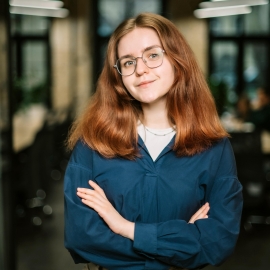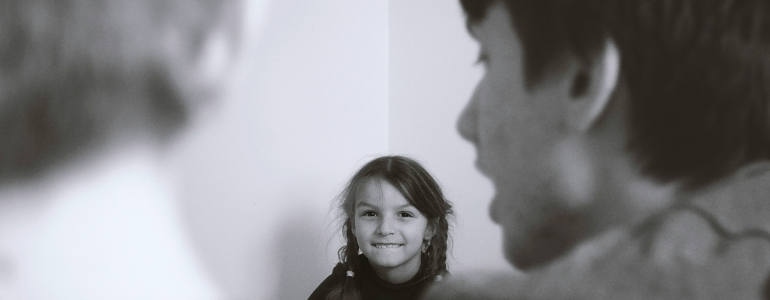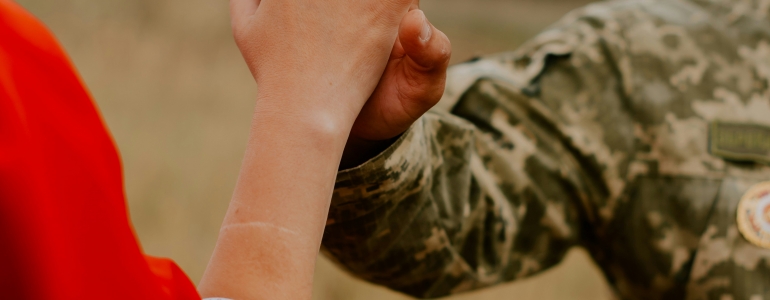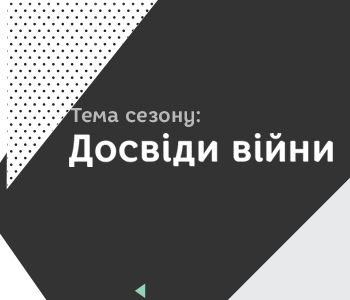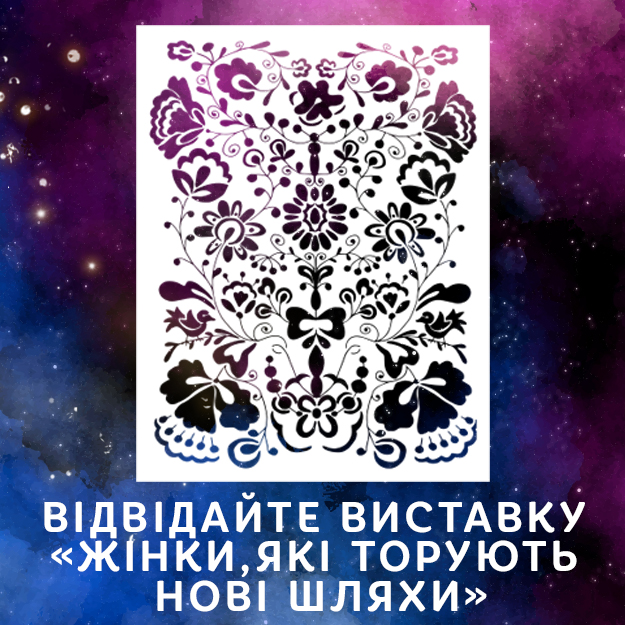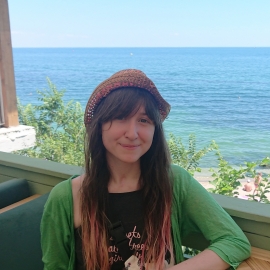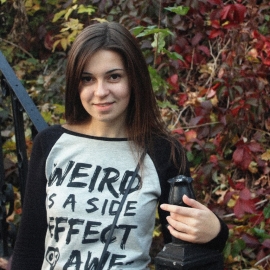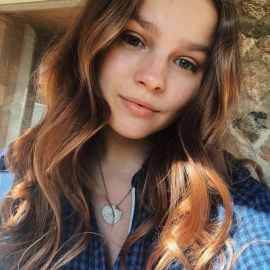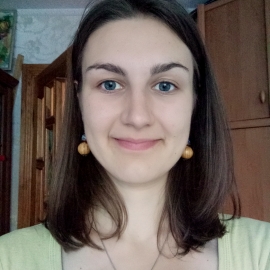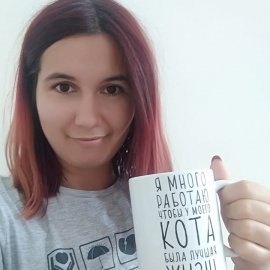Intro
The institutional provision of equal opportunities for exercising human rights and freedoms by representatives of all social groups is an essential value of any democratic state. The fundamental principle of non-discrimination is underlying Ukrainian legislation and secures equal opportunities.
This principle prohibits any discrimination against individuals or groups in a wide range of social relations. It also ensures equality of rights, freedoms, and opportunities; equality before the law; and respect for the dignity of every person. Accordingly, these provisions apply to and should be enshrined in national legislation and all regulations.
More details about the legal (non-)recognition of homosexual relationships and some legislative restrictions on human rights related to sexual orientation have already been discussed in our previous materials.
This text aims to analyze the narratives about the LGBT+ community in the external communication of national public figures, state institutions, and political parties. In addition, we analyze the legislative activities of members of the most prominent political factions represented in the Verkhovna Rada, their positions on certain bills aimed at improving the situation for or protecting the LGBT+ community, and homophobic statements and bills they initiated or supported.
Why is this important? First, the messages and actions of the individuals holding such positions do not reflect their own values or positions but their positions as people’s representatives. Accordingly, to a certain extent, they broadcast public sentiments and “voices” of their constituents. Second, official communication and activities of national public figures not only represent but also, to a great degree, “set the tone” and influence public opinion. Their narrative about LGBT couples impacts the visibility of the whole community, its appearance in the media, and public attitudes toward it. Therefore, there is no doubt that the official communication of public figures, state institutions, and political parties is inextricably linked to public sentiment.
This article analyzes the political narratives of 2019-2023.
Position on the LGBT+ community in the parties’ electoral programs
An analysis of the official position of political parties that are part the 9th Verkhovna Rada of Ukraine about the LGBT+ community should begin with the content and narratives of their electoral programs as the primary source of the declaration of their positions and ideological beliefs.
Thus, the Servant of the People party’s program, consisting of 16 sections and priorities as bullet-point statements in each, does not mention protection of LGBT+ rights. One of the paragraphs in the “National Identity and Civil Harmony” section states: “We will protect human rights and fundamental freedoms, ensure equal rights and opportunities for men and women in Ukrainian society.” The presence of such an item is better than the absence of any. However, a more specific item and the recognition of the problem of discrimination against LGBT+ people would be much better and increase its visibility.
The electoral program of the Holos party includes 23 subsections and also does not contain specific references to ensuring equal rights and opportunities or providing adequate legal protection for LGBT+ people. However, in the first subsection, “What does Ukraine sound like?”, they repeatedly emphasize that their goal is to “return the person to the center of the state,” regardless of their ideological beliefs or other characteristics. However, the party’s program does not provide a specific mechanism for achieving this goal.
The program of the European Solidarity party, like the above-mentioned parties, refers to equal opportunities for women and men and does not clearly mention protection of LGBT+ rights.
The program of the Batkivshchyna party does not mention equal rights and opportunities for different social groups and the implementation of the principle of non-discrimination.
Although as of September 2023, the program of the now defunct OPFL faction is not publicly available, the attitude towards the LGBT+ community that they had when they entered the Verkhovna Rada can be assumed from the words of former party member Yurii Boyko. In an interview, he clearly outlined the party’s position: “As for same-sex marriage, it is not even being discussed. This is such stupidity that is unacceptable for our Christian society.”[1]
Thus, an analysis of the election programs of the political parties that won the majority of seats in parliament in the 2019 elections showed that advocacy for the LGBT+ community was neither a priority nor a separate area of work for any of the parties. It is worth noting that we found no overtly homophobic statements or positions in the programs analyzed. Some referred to implementing the principle of social justice and equality of all social groups in Ukraine. However, these ideas were presented as value guidelines rather than priority work areas with a specific mechanism of action.
The existence of such references, albeit only at the ideological level, is undoubtedly better than the absence of any. However, it would be much better to specify the problem of discrimination against the LGBT+ community and actualize the issue of proper protection as a separate item in the program.
It is quite clear why naming the problem of discrimination is necessary: as long as the problem is not stated and “highlighted,” it remains invisible to the majority of society. As long as the challenges posed by no legal recognition of homosexual couples as families are not being discussed, most of society does not even notice them. Accordingly, problems that are not verbalized and actualized cannot be solved.
Membership of Ukrainian political parties in international liberal democratic associations
The affiliation of a political party with international political associations, alliances, or organizations is one way, but definitely not the only way, to assess its ideological and value orientation. It is an indicator allowing us to evaluate whether a party is friendly towards the LGBT+ community, at least declaratively. One such association is the Alliance of Liberals and Democrats for Europe (ALDE), a European transnational political party that adheres to liberal democratic values and unites parties that share them.
The Ukrainian political party Holos joined ALDE in 2020, the first parliamentary party of this Verkhovna Rada convocation to do so. According to Holos, to become a member of this association, a party must prove that it shares the values of liberal democracy, rule of law, tolerance, human rights protection, and the principles of a market economy. For its part, membership in ALDE provides access to networking with European parties with similar values and a European political elite.
The Servant of the People (SP) party was the second Ukrainian political party to join the Alliance, in 2022. According to Olena Shulyak, the party’s chairperson, this decision was not spontaneous: “Joining the ‘political family’ of the ALDE party as a full member is one of the key priorities for the Servant of the People in international politics.” The issue of accession became especially relevant after Russia’s full-scale invasion. In addition to being an indicator of shared values and beliefs, membership in the association is now seen as an important political step that promotes better integration into the European political community.
In addition to the fact that the ALDE’s unequivocal support for Ukraine’s sovereignty and integrity strengthens our country’s position in the international arena, the membership of two Ukrainian parties in ALDE also impacts decisions made within the Ukrainian political arena. For example, on May 28, 2023, ALDE adopted a resolution supporting the legislative initiative of Holos and SP MPs to submit a draft law on civil partnerships. This was the first international statement of this level calling for support for the draft law.
Although this resolution does not de jure impose any obligations on Ukraine and is only advisory, de facto, it could influence the adoption of the draft law. The European community’s call to support registered partnerships for same-sex and different-sex couples demonstrates the importance of this issue for the Alliance and the European political community, which observes liberal democratic values. This Alliance position also legalizes the significance and relevance of this issue in Ukrainian society. For Ukraine, which is fighting for its place in this community, adopting the draft law is a logical and expected step for implementing European legislation into Ukrainian national legislation.
Homophobic statements and legislative initiatives of individual party representatives
Despite the fact that the programs of the above-mentioned political parties do not contain overtly homophobic positions, and some of the parties belong to liberal democratic associations, the positions of individual party representatives sometimes contrast. This is manifested in their homophobic statements, legislative initiatives, or unwillingness to support bills aimed at improving the situation of the LGBT+ community.
Two draft laws submitted by SP MPs Heorhiy Mazurashu and Olena Lys on July 22, 2020, are vivid examples of how the positions of the party and its representatives diverge sharply. The first draft law proposes amending certain legislative acts on protecting the family, childhood, maternity, and paternity. In the draft, the authors define “homosexuality, pornography, sexual products, transgenderism” and introduce the concept of “propaganda of homosexuality or transgenderism,” although they do not yet define it. In addition, the authors propose replacing the word “gender” with “equality of rights and opportunities for women and men” throughout. In the explanatory note, the authors justify their proposal with the “danger” that “gender ideology” allegedly poses.
The second draft law proposes amendments to the Code of Ukraine on Administrative Offenses regarding liability for propaganda about homosexuality and transgenderism. In the explanatory note to the draft law, the authors express concern about “aggressive propaganda of homosexuality and transgenderism aimed at destroying the family institution” as one of the “immoral threats of our time” as a justification for its adoption. In the note, they also misinterpret the concepts of gender and gender equality and view them as inherently “explicit or implicit propaganda of homosexuality and transgenderism.”
At the same time, in his comments to Suspilne, co-author of the draft law Heorhiy Mazurashu notes that, generally, he is “far from thinking that they [transgender people and the LGBT+ community] should be treated in any way biased, or subjected to any discriminatory actions.”[2] Commenting on the draft law to Radio Liberty, he reiterates his “calm and civilized attitude towards people with different sexual orientations and gender identities.”[3] Mazurashu explains that he is concerned about the risks of “propaganda of homosexuality or transgenderism.” Therefore, he and his colleague propose introducing a fine of 1,000 tax-free minimum incomes (UAH 17,000) for individuals and 3,000 tax-free minimum incomes (UAH 51,000) for legal entities.
Another draft law initiated Heorhiy Mazurashu proposes amendments to the Budget Code of Ukraine to prevent spending budget funds on promoting pedophilia, homosexuality, and transgenderism. In addition to Mazurashu, the group of initiators of the bill includes other members of the SP party Anatoliy Drabovsky, Serhiy Kuzminykh, Artem Kultenko; and non-partisan MP Viktor Myalyk.
In the explanatory note to this draft law, the authors appeal to the government’s obligation to develop and protect the family institution. Other arguments are that “propaganda of homosexuality and transgenderism poses a threat to publichealth,” leads to “violation of the right to freedom of scientific research,” and “violation of the right to freedom of expression and freedom of religion.” In conclusion, the authors argue that “homosexuality, transgenderism, and pedophilia destroy public morality.” As a solution, the MPs propose a draft law that would potentially strengthen protection of family, childhood, maternity and paternity and prevent budget expenditures promoting “pedophilia, homosexuality, and transgenderism.”
In the comparative table to this draft law, the authors define what they mean by “pedophilia, propaganda of pedophilia, homosexuality, propaganda of homosexuality, transgenderism, propaganda of transgenderism.” They consider the production, distribution, and/or public use of products containing LGBT symbols to be a kind of “propaganda of homosexuality.”
All of these draft laws were withdrawn from consideration. Human rights defenders note that their content is very similar to the narrative from Russian legislation, which considers “propaganda of non-traditional sexual relations” a crime and introduces a fine for it.[4] In particular, the human rights NGO Our World commented on the above-mentioned legislative initiative as “support to Russian policy” and a willingness to “stand under the banner of the Russian-led movement for traditional values.” Although they believe that the real chances of passing this law, even at the time of its submission, were close to zero, the very existence of such legislative initiatives poses certain risks. These narratives are inconsistent with the ideological guidelines declared by the party in its election program and with the basic principle of non-discrimination enshrined in national law. Such initiatives go against the European integration process and Ukraine’s international obligations to ensure equality of rights and freedoms and combat xenophobia and intolerance.
In addition to the human rights community, some national public figures and institutions criticized the draft law. In particular, the office of the Ukrainian Parliament Commissioner for Human Rights commented that the initiative of the draft law on fines for “propaganda of homosexuality and transgenderism” contradicts constitutional norms and international legal standards and “aims to discriminate against members of the LGBTI community and violate their right to respect for honor and dignity.”[5]
In response to this draft law, MP Inna Sovsun submitted an alternative one that proposes including in Ukrainian legislation a ban on funding programs and activities that contain signs of direct or indirect discrimination or intolerance against individuals and their groups, depending on the characteristics that such individuals or groups possess. In justifying the need to adopt the draft law, the author also mentions that her colleague’s draft law contains outdated, incorrect terms and promotes stigmatization and discrimination against people based on their sexual orientation and gender identity. However, this draft law was withdrawn from consideration like the previous ones.
(Non)support for the draft law on civil partnerships
Another way to check whether the actions and positions of party members are consistent with the party’s official position is to analyze their (non)support for draft laws aimed at protecting the rights of the LGBT+ community. The latest and probably one of the most visible draft laws in the field LGBT+ rights protection is the draft law on registered civil partnerships. Our previous publications have already discussed the importance of adopting this draft law and the opportunities the LGBT+ community may gain (Zavhorodnia’s first text for ERIM). In this article, we will consider in more detail Ukrainian politicians’ reaction to the draft.
After a petition demanding to “legalize same-sex marriage” on the website of the President of Ukraine gained 25,000 signatures, MP Inna Sovsun of the Holos party registered a draft law on civil partnerships for same-sex and different-sex couples. The list of initiators includes 18 MPs: 7 from Holos and 11 from SP, including Oleksandra Ustinova, head of the Holos parliamentary faction, and Olena Shulyak, head of the SP party. At the time the draft law was registered, its author, assessing the chances, noted that “given the support of the two factions, adoption of the draft law is quite realistic.”[6] She also expressed special gratitude to Dmytro Gurin, a Servant of the People party member, who helped collect signatures from his faction’s MPs. The petition in support of the bill quickly gained 25,000 signatures.
After considering the draft law at a Youth and Sports Committee meeting on March 7, 2023, the majority of committee members decided to support the draft law. The committee considered creating a new institution of civil partnerships as an important step towards European integration, so it recommended that the Verkhovna Rada adopt the draft law. A report by the Our World Human Rights Center notes that it was entirely unexpected that the committee chair, Andriy Kozhemiakin, a member of the Batkivshchyna faction, would support the draft law.[7] The report states that at the committee meeting, the MP said that although he supports Christian values, he perceives this draft law as an opportunity to “do something to move away from Russian bonds” and therefore supported this decision.
The Committee on Ukraine’s Integration into the EU was the second to consider the draft law at a meeting and unanimously supported it. Among the MPs who voted for it were representatives of different political factions: Mezentseva (SP), Halaychuk (SP), Vintoniak (SP), Nalyvaichenko (Batkivshchyna), Klympush-Tsintsadze (European Solidarity), and Liubota (SP).
The Committee on Digital Transformation was the next to support the draft law. In its expert conclusion, the Committee provided several recommendations for finalizing the draft and improvements for its implementation. The draft’s author, Inna Sovsun, expressed willingness to participate in further discussions on this issue.
The Committee on Social Policy and Veterans’ Rights also supported the draft law. Among those present at the committee meeting who voted in favor were Tsyba (SP), Nikorak (European Solidarit), Strunevych (SP), Arseniuk (SP), and Babenko (Bila Tserkva Razom). In contrast, First Deputy Chair of the Committee Tsymbaliuk (Batkivshchyna), committee member Tymoshenko (Batkivshchyna), and subcommittee chair Ostapenko (European Solidarity) abstained.
Position on Pride parade
Another “litmus test” for better understanding whether the value of equal rights and opportunities is only declared in the party’s statutory documents or they are backed by actions is an analysis of the parties’ response to the Pride month that took place in Ukraine in May-June 2023. Among the largest political factions represented in the Verkhovna Rada, only Holos temporarily customized its logo to reflect the symbols of Pride, thus expressing support for the LGBT+ community. Other political factions did not react to Pride month.
Political allies of the LGBT+ community
In the fall of 2021, the Allies in Action Coalition recognized opinion leaders, activists, and politicians who publicly support diversity and inclusion. One of the seven nominations was “The Friendliest Politician,” which was awarded to Inna Sovsun, a member of the Holos party. The friendliest civil servant was former Ukrainian Parliament Commissioner for Human Rights Lyudmyla Denisova. In response to this, Sovsun said that she was pleased to receive such an award, but it also means that “the competition in this nomination is very weak.”[8]
As of September 2023, the situation has not changed dramatically. On the webpage of the Civil Partnership Advocacy project created by the NGO Fulcrum, the list of public figures who support the draft law on civil partnerships includes only Inna Sovsun (Holos) and Dmytro Hurin (SP) from among all MPs.
Conclusions and recommendations
Thus, having analyzed the official positions of the largest political factions in the current convocation of the Verkhovna Rada, we conclude that promoting LGBT+ rights is still not a priority for any of the factions. In general, parties declare the equality of citizens as one of their values in electoral programs, but for the most part, it is an ideological guideline rather than a clear direction of work with a defined set actions to achieve specific results. That is, parties are declaratively tolerant towards the LGBT+ community but are not ready to take active steps to support it, promote its interests, and improve its situation.
In addition, some party members fail to follow even this position, which is demonstrated by their homophobic legislative activities. The most striking examples cited in the article are the draft laws on “propaganda of homosexuality and transgenderism.”
The draft law on registered partnerships, registered in 2023, has become a vivid litmus test for determining the values of MPs and the consistency of their actions with the party’s declared ideological beliefs. The positive results of the draft law’s consideration in four committees suggest its adoption is possible. Nevertheless, it is still awaiting consideration by the main committee.
One more observation is the clear association of homophobia with Russian political culture after the full-scale invasion. It has become clear that the narratives of “homosexual propaganda and gender ideology” are rooted in Russia and are completely alien to the European community. Therefore, homophobia in Ukrainian politics is even more obviously perceived as a threatening rapprochement with the aggressor, while tolerance and protection of the LGBT+ community are one of the necessary steps towards European integration. Accordingly, we hope that the logical choice for MPs when considering the draft law on civil partnerships will be approximating our legal standards to international ones.
This publication has been produced by Gender in Detail with the financial support of the European Union. Its contents are the sole responsibility of the author and do not necessarily reflect the views of the European Union.
The Resilience Programme is a 30-month project funded by the European Union and implemented by ERIM in partnership with the Black Sea Trust, the Eastern Europe Foundation, the Human Rights House Foundation and the Human Rights House Tbilisi. The project aims to strengthen the resilience and effectiveness of war-affected CSOs and civil society actors affected by the war in Ukraine, including independent media and human rights defenders.

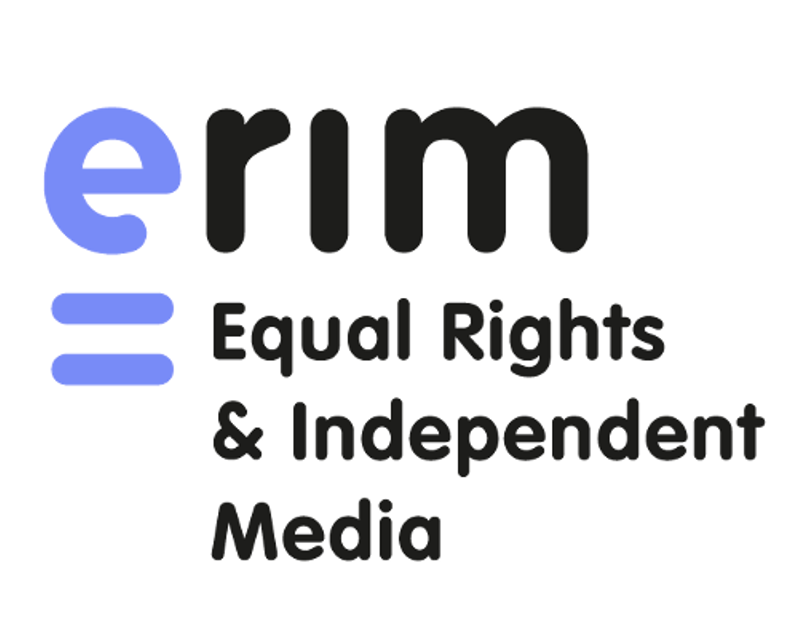

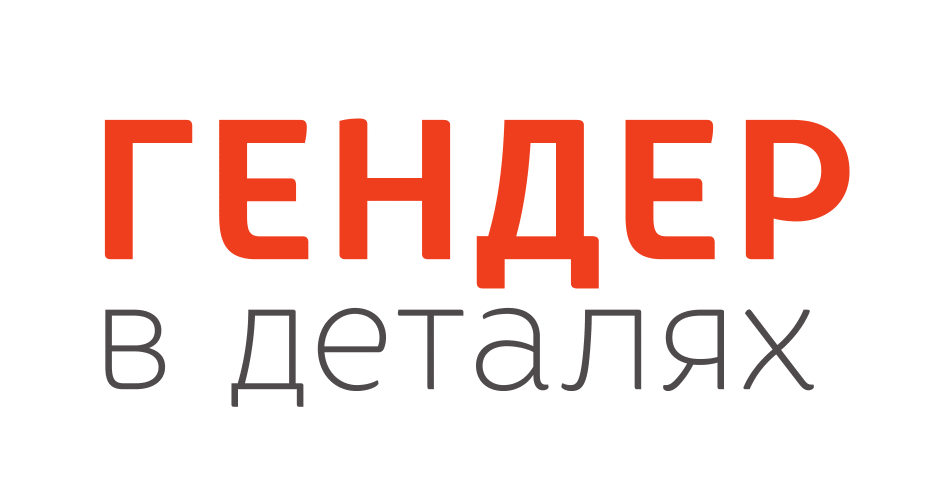
[1] Being an ally. Who supports diversity in Ukraine and why. Focus, 30.11.2021.
[2] We did it! My draft law on civil partnerships for same-sex and different-sex couples is already registered in the parliament and is designated number 9103. MP’s notes | Sovsun, 13.03.2023.
[3] Situation of LGBTQ in Ukraine in 2023. Our World LGBT human rights center.
[4] “Servant of the People” followed the footsteps of russian colleagues and intended to ban “propaganda of homosexuality and transgenderism.” Hromadske, 22.07.2020.
[5]July 22 Verkhovna Rada of Ukraine registered the draft law “On amending the Code of Ukraine on Administrative Offenses regarding liability for propaganda of homosexuality and transgenderism” № 3917. Ukrainian Parliament Commissioner for Human Rights, 27.07.2020.
[6] “Natures mistakes”. Why the draft law against LGBT propaganda was registered in the parliament and how human rights defenders comment? Suspline:news, 23.07.2020.
[7] MP Mazurashu explained why he initiated “penalties for propaganda of homosexuality and transgenderism.” Radio Svoboda, 22.07.2020.
[8] Razumkov, Boyko, and Poroshenko – on marijuana and gay marriages. NV, 12.07.2019.
